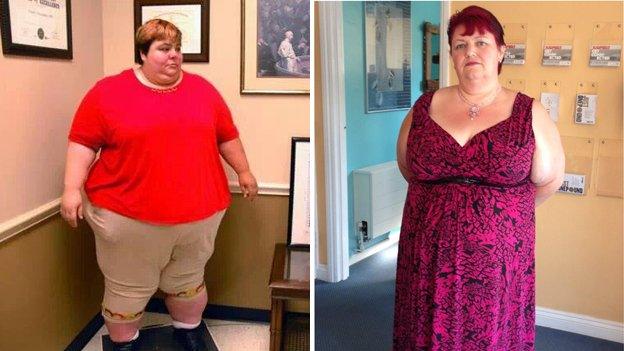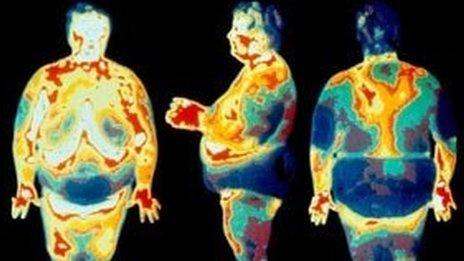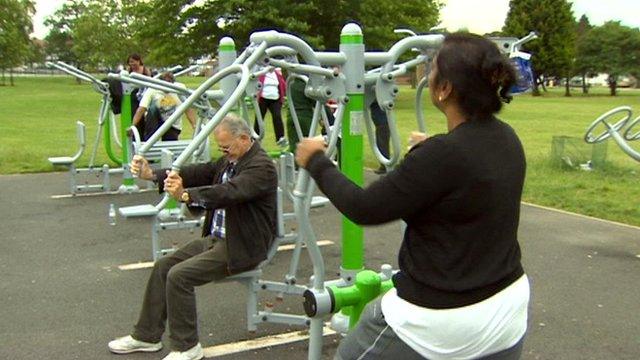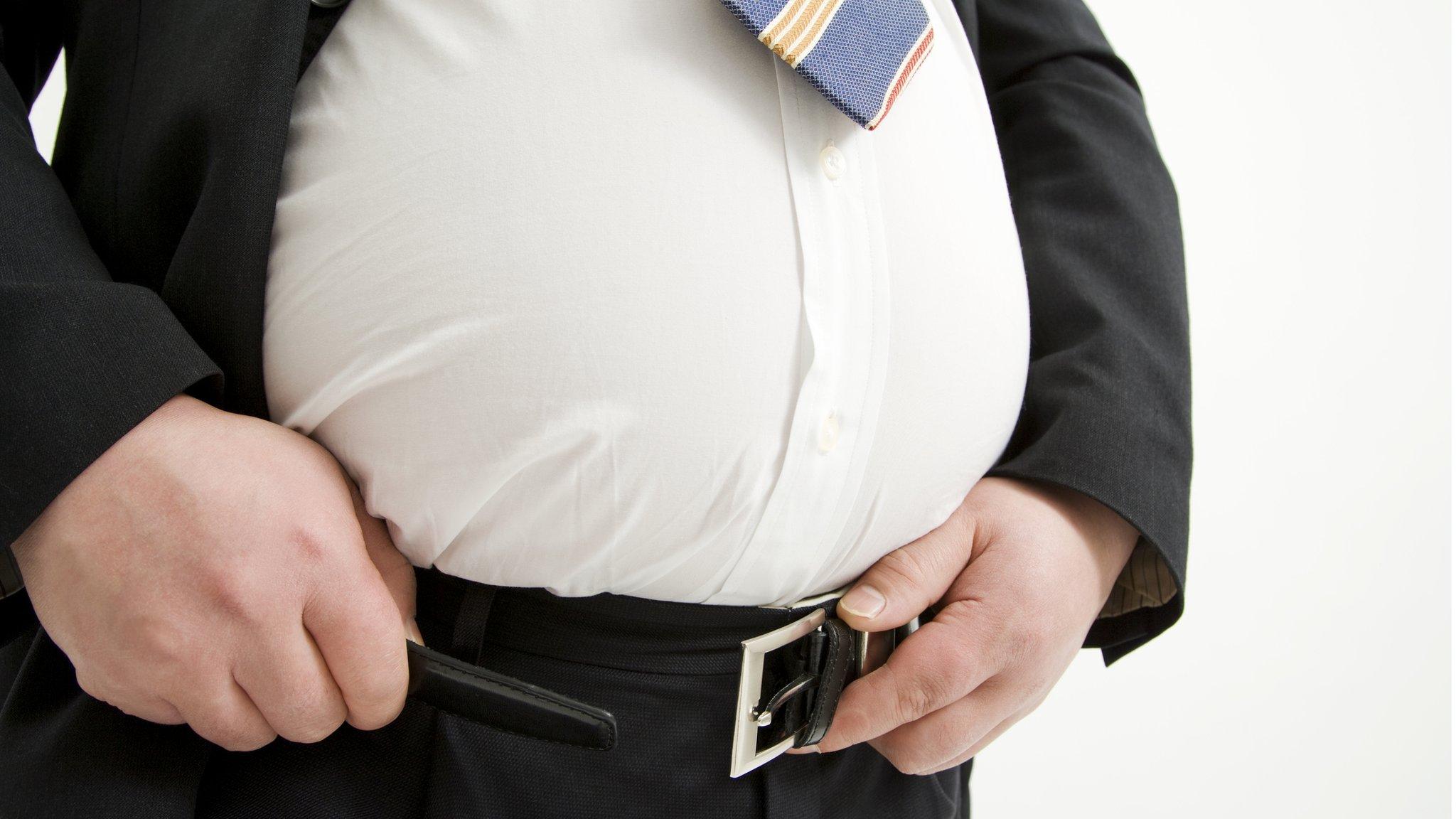Victim of fat-shaming loses 25 stone after surgery
- Published

Zaneta Jones before and after she had weight-loss surgery
Weight loss surgery should be rolled out to thousands more patients with type 2 Diabetes, draft guidelines published by health watchdog the National Institute for Clinical Excellence (NICE) suggest. But why can't overweight people just eat less and exercise more? One victim of "fat shaming" shares her story.
Zaneta Jones, from Newquay, lost 25 stone (160kg) after surgery, and her diabetes is now in remission. But this was not before she had dog excrement thrown at her after being accused in a national newspaper of wasting precious NHS resources.
She recalls the moment three years ago when she was abused.
"My son had an accident while playing American football and was taken to hospital. As we went in the door, we had people having a go at us saying, 'You're that family from the paper, you shouldn't be allowed in here, you've wasted NHS money - my father hasn't had the cancer treatment he needs.'
"I went and sat in the car, and I was too scared to go in.
"At the same time we had dog poo in carrier bags thrown at us. We were called the scum of the earth. It took a lot for me to go back outside again."
Teenage rebellion
Like many people with obesity, she had deep psychological and emotional problems. As a child in the 1970s, she was given slimming pills to counteract a family history of heart disease and her access to food was restricted.
When she started to work at the age of 16, Zaneta rebelled against her harsh dietary regime, and her weight spiralled out of control.
"At my absolute heaviest I was 40 stone and my BMI [body mass index] was 85," she says. A healthy BMI is classified as 18.5-24.9.
And what started as a teenage rebellion soon became complicated by fertility problems.
"I tried doing silly diets like the cabbage soup diet, things like that, every time I would lose five or 10lb and I would think, 'That's nothing to 40 stone,' and I did actually give up."
Zaneta even had her jaw wired, which she recalls "was 18 months of just having a pint of skimmed milk and a pint of orange juice a day".
"Yes, you lost weight - I lost 10 stone in that 18 months - but I was going to have a fertility operation and I didn't get it because I was 3lb overweight, so I then put on 11 stone," she says.
By this time Zaneta had taken to wearing men's clothes because there was nothing available for her size in women's shops.
And she did not only suffer diabetes - she had eye and kidney problems, high cholesterol and sleep apnoea - all caused by her obesity. She could only travel by wheelchair because her weight made walking difficult.
In remission
Far from eliciting sympathy, her size was highlighted in a national newspaper where she and her family were accused of wasting the NHS £1.2m in weight loss treatments.
The story still rankles on several levels. Zaneta says she was never interviewed directly by the paper, and that several important details, including the costs quoted in the article were inaccurate.
But even then, it was not the abuse generated by the newspaper coverage that made her change - more the fear that she would lose her life.
"The biggest shock was when I went to see my endocrinologist about my diabetes and she said if you don't do something you won't be here at the end of the year. And he referred me to have the gastric bypass," she says.
Before having the operation six years ago, Zaneta had to reduce her BMI from 85 to 60, and to assist her with dieting she had a gastric balloon fitted for nine months - effectively reducing the amount she could eat.
The balloon was removed just before Christmas, but there was a six week delay to allow her stomach to settle.
"You can imagine that for someone who is addicted to food, having to watch what you eat at that time of the year is torture," she says.
But she managed to keep her weight under control, and as for the gastric bypass itself, she says: "It's supposed to be major surgery, but it didn't feel like major surgery. I didn't feel much at all."
Zaneta is now in remission from type 2 diabetes and her other health problems have largely disappeared. She no longer needs a wheelchair.
- Published17 January 2014

- Published11 July 2014

- Published11 July 2014
